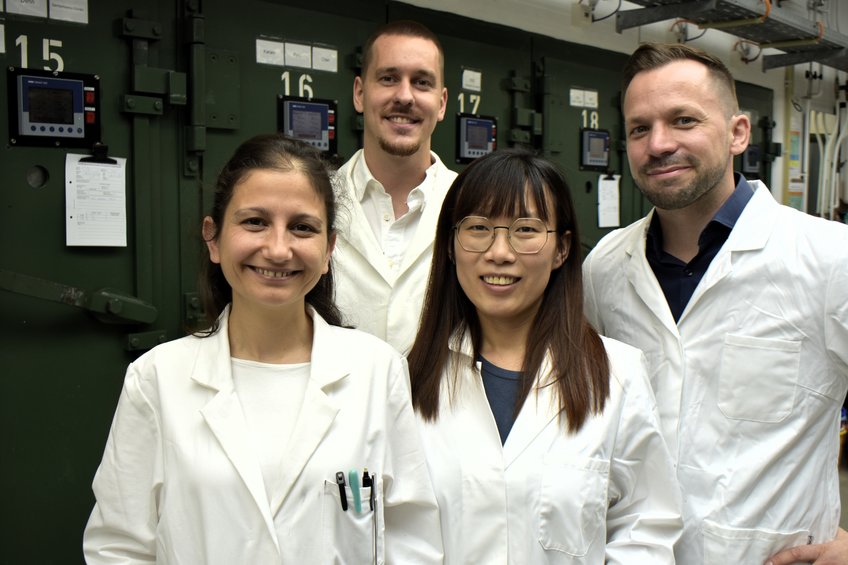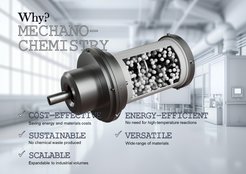
Welcome to MechSyn
Who are we?
MechSyn is born out of the innovative environment of the Max-Planck-Institut für Kohlenforschung. Inspired by the groundbreaking work of Ferdi Schüth’s group, Dr. Özgül Agbaba envisioned a path to commercialize cutting-edge research. With the mentorship of Prof. Schüth, this vision has evolved into MechSyn, a company dedicated to pushing the boundaries of material synthesis via mechanochemistry. Supported by the prestigious EXIST-Forschungstransfer funding, with a grant of €1.26 million over two years, MechSyn is ready to bring scientific advancements from the lab to the world.
What can we do?
Our mission is to address the challenges of material synthesis in commercial applications, particularly by eliminating the use of solvents and high-temperature, high-pressure procedures. We focus on manufacturing high-performance materials for catalysts, catalyst supports, and conductive materials, for various critical applications. Additionally, MechSyn aims to help companies achieve their net zero CO2 emission targets by offering alternative synthesis methods.

What is Mechanochemistry?
Mechanochemistry involves the use of mechanical force to drive physicochemical changes in solid materials. Compared to the conventional way of synthesizing chemicals, mechanochemical synthesis has the following advantages:
• Environmentally Friendly: Reduces or eliminates the need for solvents, minimizing chemical waste.
• Energy Efficient: Often operates at room temperature, avoiding the need for high-temperature processes.
• Scalability: Can be easily scaled up, with larger milling sizes providing greater forces.
• Versatility: Suitable for synthesizing a wide range of materials, sometimes resulting in materials that have no other means of production.
• Cost-Effective: Reduces energy and material costs by simplifying the synthesis process.

What do we challenge?
While scaling up, impurities from milling media and process costs are common concerns, MechSyn is dedicated to overcoming these challenges. We recently demonstrated that scalability is not an issue for one of our materials, and larger milling sizes can even be beneficial due to the greater forces applied. Stay tuned as we provide more details on our scale-up procedures and solutions to these challenges.
With the funding of EXIST-Forschungstransfer for two years, we are excited to work on these challenges.
Visit our MechSyn LinkedIn Profile!



